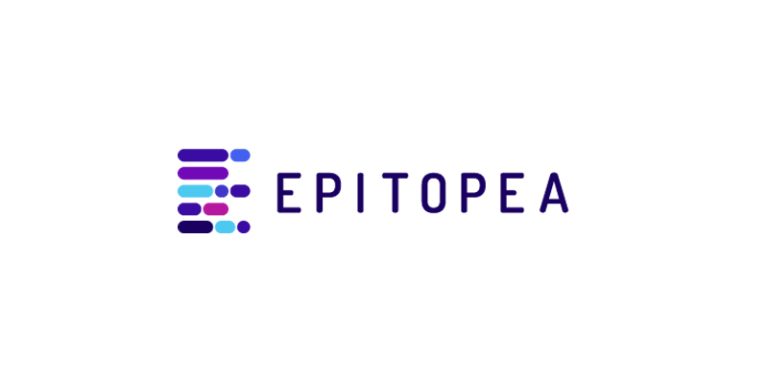Positive Phase 2 End of Study Data with Bel-sar in Early-Stage Choroidal Melanoma; Ongoing Phase 3 CoMpass Trial Recently Received Authorization to Start Enrolling Patients in Europe
Multiple Clinical Complete Responses Observed with Single Low Dose of Bel-sar in Ongoing Phase 1 Trial in Non-Muscle Invasive Bladder Cancer (NMIBC); Phase 1 Expansion Preparation in Progress
Strong Cash Position Expected to Support Operations into 2H 2026
BOSTON, Nov. 12, 2024 (GLOBE NEWSWIRE) — Aura Biosciences, Inc. (NASDAQ: AURA), a clinical-stage biotechnology company developing precision therapies for solid tumors designed to preserve organ function, today reported financial results for the third quarter ended September 30, 2024, and provided recent business highlights.
“This is a transformative time for our Company, as we presented the first positive data in NMIBC, which we believe provides clinical evidence of the potential of bel-sar in solid tumors beyond the eye,” said Elisabet de los Pinos, PhD, Chief Executive Officer of Aura Biosciences. “We believe that bel-sar’s innovative mechanism of action may provide the first immune-ablative treatment in bladder cancer, with the goal to potentially offer safe and durable responses with a focal approach that is easily delivered by urologists in the office.”
In addition to positive early data from an ongoing Phase 1 trial of bel-sar in patients with NMIBC, the Company also recently presented positive Phase 2 end of study data in early-stage choroidal melanoma and continues to progress the ongoing Phase 3 CoMpass trial.
“I am excited for bel-sar’s potential for patients who are diagnosed with indeterminate lesions or small choroidal melanoma where we currently have no good treatment options. We either wait for the disease to progress or treat with radiation, which leads to irreversible vision loss,” said Carol L. Shields, MD, Chief of the Ocular Oncology Service at Wills Eye Hospital and Professor of Ophthalmology at Thomas Jefferson University in Philadelphia. “If approved, bel-sar may represent the opportunity to treat choroidal melanoma at an earlier stage of medical intervention and set a new standard of care in a disease that has had no new therapies approved for decades.”
Recent Pipeline Developments
Early-Stage Choroidal Melanoma
Early-stage choroidal melanoma represents an area of high unmet need with no drugs approved. The Company previously received Orphan Drug Designation from the United States Food and Drug Administration (FDA) and the European Medicines Agency (EMA) and Fast Track designation from the FDA for the treatment of early-stage choroidal melanoma.
Update on Ongoing Phase 3 CoMpass Trial: CoMpass is the first registration-enabling study in early-stage choroidal melanoma. The study is a global, Phase 3, randomized trial evaluating bel-sar treatment against a sham control arm and includes an enrichment strategy to enroll 100 patients with documented growth, an approach agreed upon under a Special Protocol Assessment (SPA) agreement with the FDA.
- The Company recently received authorization from the EMA to commence the trial under the European Union (EU) Clinical Trial Regulation (CTR) process. This approval was later than anticipated due to a requirement for additional testing to support drug substance characterization that has been successfully met. This authorization permits the Company to start enrolling patients in the study in the EU. The study started enrolling in the United States in December 2023 and currently has sites activated in the United Kingdom, Australia and Canada.
- To identify appropriate patients to meet the enrichment strategy of documented growth, the Company has enabled a pre-screening ‘run in’ period. Globally, since June 2024, investigators have registered over 100 patients in pre-screening as having met initial enrollment criteria for the study. The Company continues to monitor the overall timeline for the study, with European sites in the process of being activated.
The Company announced positive Phase 2 end of study results evaluating bel-sar as a first-line treatment for early-stage choroidal melanoma.
Clinical Data: The Phase 2 results demonstrated that bel-sar achieved an 80% tumor control rate (n=8/10) and durability of response at 12 months among Phase 3-eligible patients who received the therapeutic regimen. Visual acuity preservation was achieved in 90% of these patients. We believe the Phase 2 results are a significant achievement that support the design of the ongoing Phase 3 trial.
Safety Data: The safety profile of bel-sar was highly favorable in all participants. There were no treatment-related serious adverse events reported. Ocular treatment-related adverse events were mild (Grade 1).
Additional Ocular Oncology Indications:
In addition to early-stage choroidal melanoma, bel-sar is being explored for metastases to the choroid and cancers of the ocular surface. These three ocular oncology indications have a collective incidence of greater than 60,000 patients annually in the United States and Europe.
Metastases to the Choroid
The Company is initiating clinical development for bel-sar as a potential treatment for metastases to the choroid, an indication with high unmet medical need and no approved therapies. The Company aims to enroll the first patients in a Phase 2 trial in 2024. Metastases to the choroid represents the second potential ocular oncology indication for bel-sar, affecting approximately 20,000 patients annually in the United States and Europe. The Company previously received FDA Fast Track designation for bel-sar as a treatment in this indication.
Cancers of the Ocular Surface
The Company’s third potential ocular oncology indication is cancers of the ocular surface, which affect approximately 35,000 patients in the United States and Europe annually. The Company continues to advance its preclinical work designed to be IND-enabling in cancers of the ocular surface.
Bladder Cancer
The Company announced positive early data from an ongoing Phase 1 clinical trial of bel-sar in patients with NMIBC.
Clinical Data: In these early data from the first 8 patients treated with a single low dose of bel-sar with light activation, a clinical complete response was observed in 4 out of 5 patients with low grade disease; visual tumor shrinkage was observed on cystoscopy in 2 out of 3 patients with high grade disease where tumor cells were still present on histopathological evaluation. For this analysis, clinical complete response was defined as the absence of tumor cells on histopathologic evaluation. In addition, immune activation was noted in all patients with available immune staining in both treated target and untreated non-target bladder tumors with rapid infiltration of effector CD8+ and CD4+ T-cells within days after treatment. This data provides evidence of a bladder urothelial field effect, potentially indicating a broader immune response in the bladder beyond the target tumor in these patients.
Safety Data: In the safety analysis as of the September 9, 2024 data cut-off date (n=12), bel-sar was well-tolerated, with less than 10% Grade 1 and no Grade 2 or higher drug-related adverse events reported. No serious adverse events have been reported.
Future Development: The Company plans to continue development of bel-sar in bladder cancer with an initial focus on low-grade, intermediate risk NMIBC patients, through a planned trial expansion to test additional doses and treatment regimens with the opportunity to assess early durability of response at 3 months. In parallel, the Company is planning regulatory discussions on the design of the next trial with the goal of expediting clinical development in this patient population.
Recent Corporate Events
- The Company announced the appointment of Sabine Doris Brookman-May, MD, FEBU as the Company’s Senior Vice President, Therapeutic Area Head Urologic Oncology.
- The Company hosted a virtual ocular oncology investor event featuring Ivana Kim, MD (Mass Eye and Ear) and Prithvi Mruthyunjaya, MD, MHS (Stanford University Byers Eye Institute) to discuss the Phase 2 end of study data on Thursday, September 12, 2024. A replay of the webcast is available on the “Investors & Media” page under the “Events & Presentations” section of Aura’s website at https://ir.aurabiosciences.com/events-and-presentations.
- The Company hosted a virtual urologic oncology investor event featuring Max Kates, MD (Johns Hopkins), Joe Jacob, MD (Syracuse University), Neal Shore, MD (Carolina Urologic Research Center) and Gary Steinberg, MD (RUSH University) to discuss the early Phase 1 data on Thursday, October 17, 2024. A replay of the webcast is available on the “Investors & Media” page under the “Events & Presentations” section of Aura’s website at https://ir.aurabiosciences.com/events-and-presentations.
Third Quarter 2024 Financial Results
- As of September 30, 2024, the Company had cash and cash equivalents and marketable securities totaling $174.4 million. The Company believes its current cash and cash equivalents and marketable securities are sufficient to fund its operations into the second half of 2026.
- Research and development expenses increased to $17.0 million for the three months ended September 30, 2024 from $15.4 million for the three months ended September 30, 2023 primarily due to manufacturing and development costs for bel-sar and higher personnel expenses related to growth of the Company.
- General and administrative expenses increased to $6.2 million for the three months ended September 30, 2024 from $5.1 million for the three months ended September 30, 2023. General and administrative expenses include $1.6 million and $1.2 million of stock-based compensation for the three months ended September 30, 2024 and 2023, respectively. The increase was primarily driven by personnel expenses, as well as increases in general corporate expenses related to the growth of the Company.
- Net loss for the three months ended September 30, 2024 was $21.0 million compared to $18.5 million for the three months ended September 30, 2023.
About Aura Biosciences
Aura Biosciences is a clinical-stage biotechnology company focused on developing precision therapies for solid tumors that aim to preserve organ function. Our lead candidate, bel-sar (AU-011), is currently in late-stage development for primary choroidal melanoma and in early-stage development in other ocular oncology indications and bladder cancer. Aura Biosciences is headquartered in Boston, MA. Our mission is to grow as an innovative global oncology company that positively transforms the lives of patients.
For more information, visit aurabiosciences.com. Follow us on X (formerly Twitter) @AuraBiosciences and visit us on LinkedIn.
Forward-Looking Statements
This press release contains forward-looking statements within the meaning of the Private Securities Litigation Reform Act of 1995, as amended, and other federal securities laws. Any statements that are not statements of historical fact may be deemed to be forward-looking statements. Words such as “may,” “will,” “could,” “should,” “expects,” “intends,” “plans,” “anticipates,” “believes,” “estimates,” “predicts,” “projects,” “seeks,” “endeavor,” “potential,” “continue” or the negative of such words or other similar expressions can be used to identify forward-looking statements. These forward-looking statements include express or implied statements regarding Aura’s future expectations, plans and prospects, including, without limitation, statements regarding the therapeutic potential of bel-sar for the treatment of various cancers; statements regarding Aura’s plans and expectations for its ongoing and future clinical trials of bel-sar in various oncology indications and the preclinical development of bel-sar in cancers of the ocular surface; statements regarding Aura’s beliefs and expectations for bel-sar’s ability to provide durable responses in bladder cancer patients and choroidal melanoma patients; statements regarding Aura’s expectations for an improved quality of life of patients after treatment with bel-sar and changes to the treatment paradigm for patients; statements regarding bel-sar’s potentially immune ablative effects; statements regarding bel-sar’s safety profile; statements regarding Aura’s beliefs and expectations for the high unmet medical need for an effective local treatment in ocular and urologic oncology; statements regarding Aura’s expectations for the estimated patient populations and related market opportunities for bel-sar; statements regarding the potential for regulatory approval of bel-sar; and statements regarding the Company’s expected cash runway.
The forward-looking statements in this press release are neither promises nor guarantees, and investors should not place undue reliance on these forward-looking statements because they involve known and unknown risks, uncertainties and other factors, many of which are beyond Aura’s control and which could cause actual results to differ materially from those expressed or implied by these forward-looking statements, including, without limitation, uncertainties inherent in clinical trials and in the availability and timing of data from ongoing clinical trials; the expected timing for submissions for regulatory approval or review by governmental authorities; the risk that the results of Aura’s preclinical and clinical trials may not be predictive of future results in connection with future clinical trials; the risk that early or interim data from ongoing clinical trials may not be predictive of final data from completed clinical trials; the risk that governmental authorities may disagree with Aura’s clinical trial designs even where Aura has obtained agreement with governmental authorities on the design of such trials, such as the Phase 3 SPA agreement with the FDA; whether Aura will receive regulatory approvals to conduct trials or to market products; whether Aura’s cash resources will be sufficient to fund its foreseeable and unforeseeable operating expenses and capital expenditure requirements; Aura’s ongoing and planned preclinical activities; and Aura’s ability to initiate, enroll, conduct or complete ongoing and planned clinical trials. These risks, uncertainties and other factors include those risks and uncertainties described under the heading “Risk Factors” in Aura’s most recent Annual Report on Form 10-K and Quarterly Report on Form 10-Q filed with the United States Securities and Exchange Commission (SEC) and in subsequent filings made by Aura with the SEC, which are available on the SEC’s website at www.sec.gov. Except as required by law, Aura disclaims any intention or responsibility for updating or revising any forward-looking statements contained in this press release in the event of new information, future developments or otherwise. These forward-looking statements are based on Aura’s current expectations and speak only as of the date hereof and no representations or warranties (express or implied) are made about the accuracy of any such forward-looking statements.
Investor Contact:
Alex Dasalla
Head of Investor Relations and Corporate Communications
IR@aurabiosciences.com
Media Contact:
Kimberly Ha
KKH Advisors
kimberly.ha@kkhadvisors.com
917-291-5744






